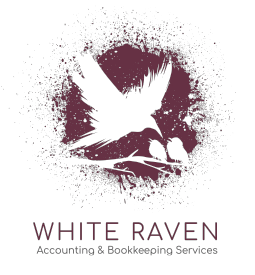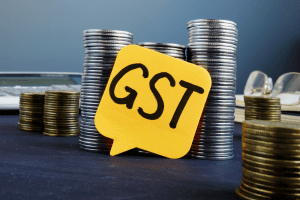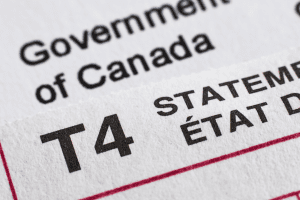Many Canadians dread tax season, but if you’re expecting a refund or claiming benefits/credits such as the GST/HST credit or Canada Child Benefit, it can actually be beneficial. This list will help you maximize your return by highlighting the most popular Canadian tax deductions and credits to take advantage of, so you can look forward to tax season rather than dreading it.
It is mandatory for every Canadian to file their own tax return each year, even if they have a spouse. There are also strategies to maximize tax benefits with a spouse, such as income splitting and transferring deductions. Typically, the spouse with the higher income should claim the majority of deductions first, since they’re likely in a higher tax bracket.
When is the tax return deadline in Canada?
Every year, the Canada tax deadline is April 30, marking the last day to file your income tax return for the previous year. If this date falls on a weekend or holiday, the deadline is extended to the next business day. It’s important to file on time to avoid penalties and interest on any amounts owed to the Canada Revenue Agency (CRA).
How do you maximize your tax return in Canada?
If you want to maximize your tax return, then you need to calculate all of your taxable income first. Once this is done you need to lower it using as many Canadian tax deductions and credits as possible. A deduction reduces your taxable income, while a credit minimizes the amount of tax that you owe.
What Canadian Tax Deductions and Credits Can You Use?
There are hundreds of credits and deductions that you can use to your advantage. If you want to do your own research, view the link below for a full list of Canadian tax deductions and credits from the Canada Revenue Agency (CRA). We’ve put together a list of the 10 most common deductions and credits that you can use for your personal taxes.
All Canadian Tax Deductions And Credits List
1. GST/HST Credit
Both the Goods and Services Tax/Harmonized Sales Tax (GST/HST) credit was implemented for low and modest-income individuals and families to offset the GST or HST that they pay on consumer goods and services. You are automatically considered for the GST/HST credit when you file your taxes.
2. Charitable Tax Credit
Donations to charity allow you to receive tax benefits for your donations that you are eligible for. The Charitable Donation Tax Credit when you make a donation to a registered charity.
3. Self-Employment Expenses
the CRA allows you to deduct a wide variety of business expenses on your tax return. Depending on the type of self-employment that you have you could save up to thousands of dollars by writing off business expenses on your tax return. It’s crucial that you claim all of your business-related expenses on your tax return. While this lowers your tax payable, you are also putting together an accurate picture of your business’s overall health.
A few of the most common expenses for self-employed taxpayers are
- Vehicle expenses.
- Home office expenses.
- Inventory.
- Cell phone.
There are hundreds of different business expenses that you can use to your advantage. If you would like to learn more, read our blog: Canadian Tax Deductions Guide For Small Businesses
4. Medical Expenses
Medical expenses add up faster throughout the year than you think. Prescriptions and regular dental visits allow you to earn credit at tax time.
In order to get the most out of your claim, it’s generally best to have one spouse claim all of the medical expenses for the family and dependents you support.
There are plenty of medical expenses that often go overlooked. Some of these overlooked medical expenses include:
- Tutoring for children with disabilities
- Travel expenses to seek medical treatment. This only applies if the trip is more than 40km away.
- Prescription glasses or contacts
- Dentures and dental implants
- Fertility expenses. In vitro and surrogacy-related expenses and procedures have a more in-depth list of all of the eligible expenses. They are covered under the federal budget once they are approved.
5. Tuition Tax Credit
Post-secondary education in Canada continues to rise and saving money on college or university fees is vitally important. Generally, any student over the age of 16 enrolled in post-secondary at a designated educational institution in Canada is eligible to claim the tuition credit. Students continuing education after high school are also typically eligible.
6. Student Loan Interest
Interest paid on a student loan is a credit that students are eligible to receive. This credit is implemented to help students relieve some of the stress that comes with repaying student loans. The CRA offers a deduction for qualifying student loan interest payments.
You are able to carry forward unclaimed student loan interest over the span of five years so be sure that you keep your documents in order and organized.
7. Child Care Expenses
You are able to claim tax-deductible childcare expenses that are paid to day nursery schools, daycare centers, caregivers, overnight boarding schools, day camps, and more.
There are limitations on who is able to claim these expenses. In a two-parent household, only the spouse/common-law partner with the lower income is able to claim the childcare expenses.
8. Canada Caregiver Credit
If you support a spouse, common-law partner, or a dependent with a physical or mental impairment, then the Canada Caregiver Credit (CCC), non-refundable tax credit, may be available for you. How much you are able to claim depends on your relationship with the person for who you are claiming the CCC, the person’s net income, your circumstances, and whether the credits are also being claimed for that person.
9. Moving Expenses
You are able to claim expenses if you moved at least 40 kilometers closer to your work, a new business, or for post-secondary education schooling.
Some of the qualifying expenses include
- Storage costs
- Travel expenses
- Temporary living expenses
- Cost of canceling a lease
10. Work from Home Expenses
Introduced by the CRA in 2020 after the surge in remote work with the pandemic is the Work from Home Tax Credit.
CRA allows employees who work from home to claim up to $500 in employment expenses at a flat rate for the tax year 2021.
You may be eligible to claim more than the flare rate account if you have the new T2200-s signed by your employer. This form outlines exactly the expenses you can claim, along with any reimbursements you’ve received.
For more information on T220S: https://www.canada.ca/en/revenue-agency/services/forms-publications/forms/t2200s.html
Save More With Accounting Services
If you feel overwhelmed not knowing which one of the 400+ tax credits and deductions you qualify for, know you’re not alone. At White Raven, we can happily take this off your plate. We provide personal tax services for any kind of client, whether you’re an individual, a family, a solo proprietorship, a business, and many many others. We have numerous documents we can provide your clients with to help obtain all of the required tax information for your tax return so you can save time and money when tax season rolls around.
Our main goal at White Raven Accounting is to maximize your tax refund or minimize your tax payable balance by utilizing every possible tax credit and deduction that is available.
Contact us today for a free consultation.





